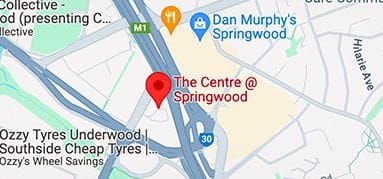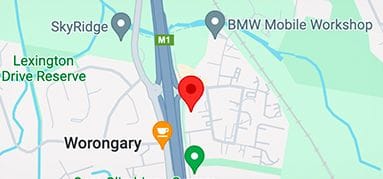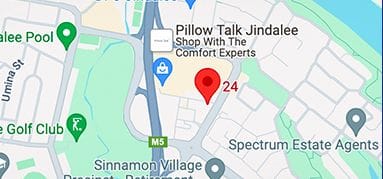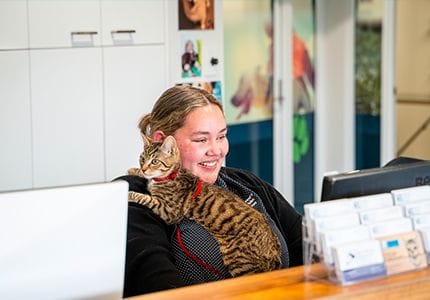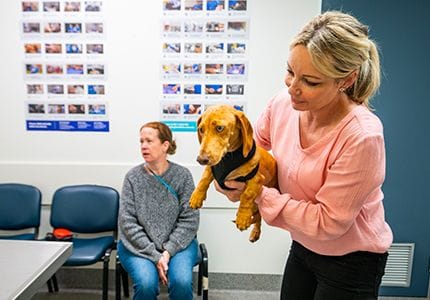Dr Abbie Tipler, a surgeon at Veterinary Specialist Services, explains how to care for your pet post abdominal surgery, for example ovariohysterectomy (spey procedure). She explains what to look for and how to check a patient's colour.
CLIENT INFORMATION
HOME CARE POST ABDOMINAL SURGERY
Caring for your pet post abdominal surgery
Abdominal surgery isn’t overly invasive and your pet should return to its normal behaviour soon after leaving the clinic. If your pet is showing any of the following symptoms, you should call your vet for guidance.
Signs and Symptoms to watch for
Pain
Your pet shouldn’t be in pain or be overly uncomfortable following abdominal surgery.
Determine if your pet’s wound is in pain by gently pressing around the surrounding area. The pressing shouldn’t cause discomfort to your pet. If your pet seems agitated or shows other signs of pain, you should call your vet for guidance.
Change in colour
The mucus membrane of the eye and mouth is an indication of a healthy recovery after canine abdominal surgery.
The colour of both shouldn’t change from what it regularly looks like, which is a soft pink. If the mucus membrane is unusually pale or dark, call your vet.
You can check your pet for redness and weeping. If your dog's surgical wound is uncovered, you can check for redness and weeping.
A change in behaviour
A change in your dog’s behaviour can be an indication of issues post abdominal surgery.
It’s normal for a slight disinterest in eating for a few days following the surgery, however, your pet should return to its normal behaviour following those days.
General lethargy can be expected, but if your pet is unwilling to participate in your regular activities or is acting unusual, you should call your vet.
Sickness
If your pet is showing signs of sickness such as vomiting or diarrhoea post abdominal surgery, call your vet.
)
